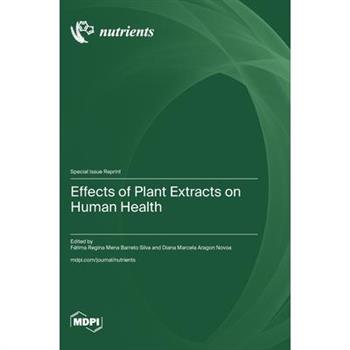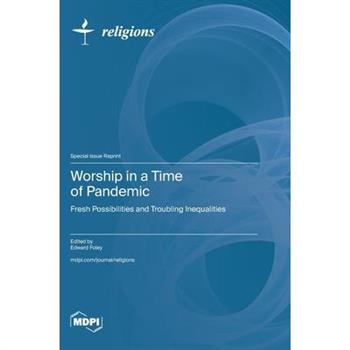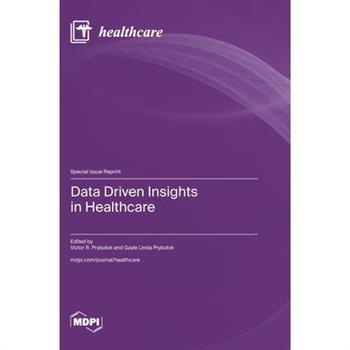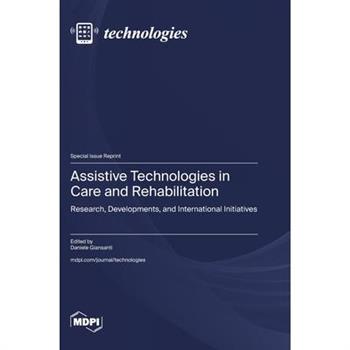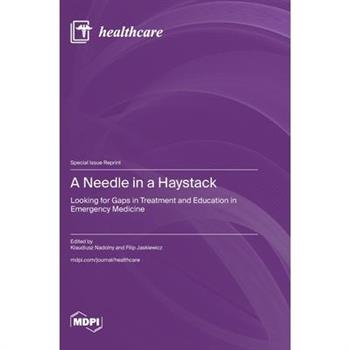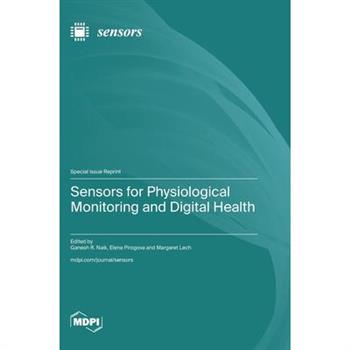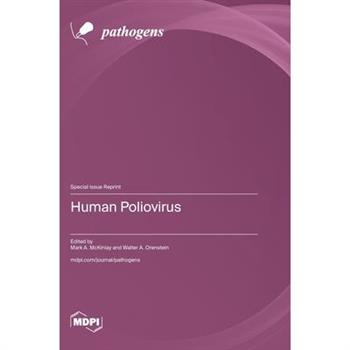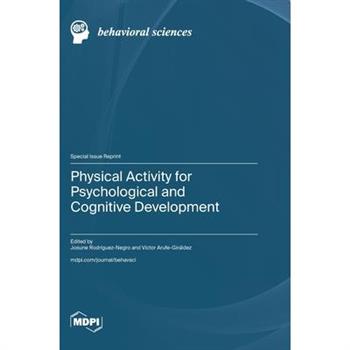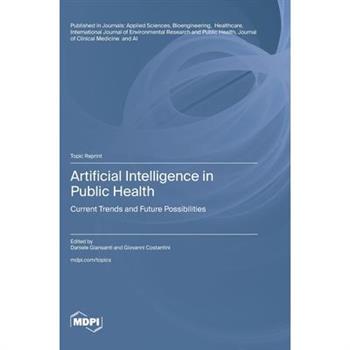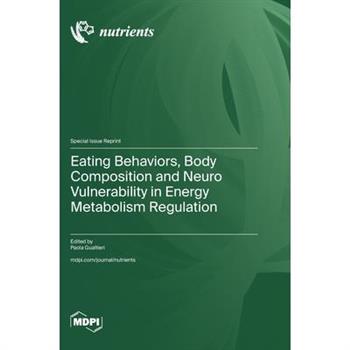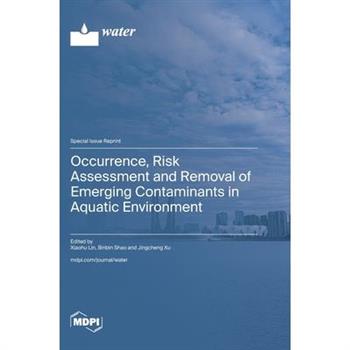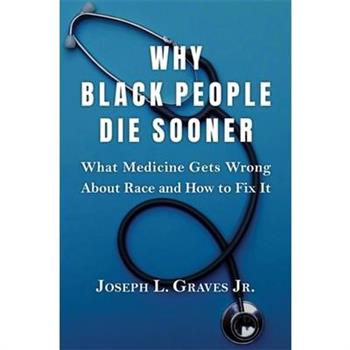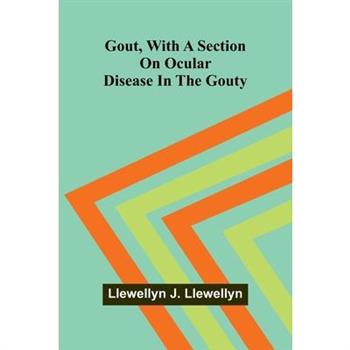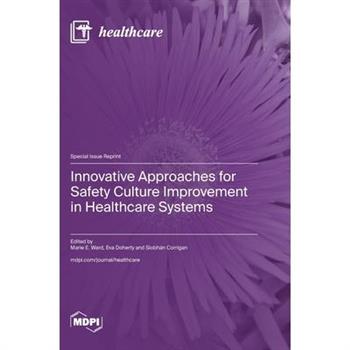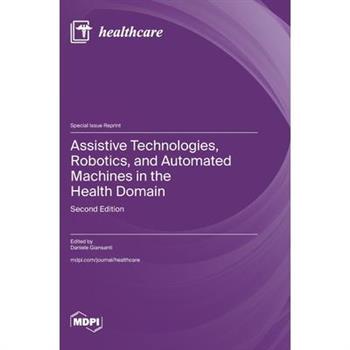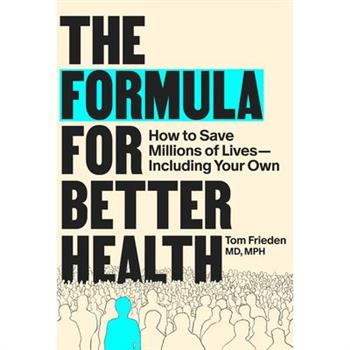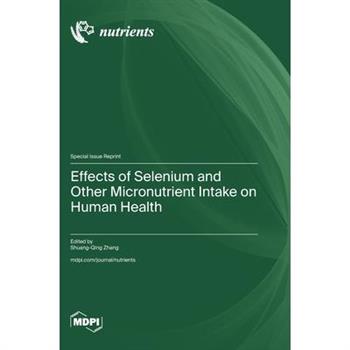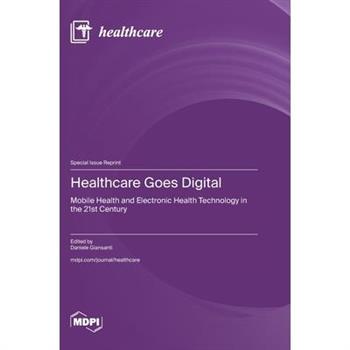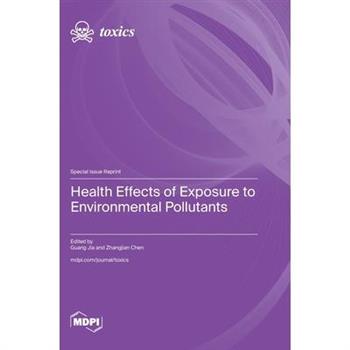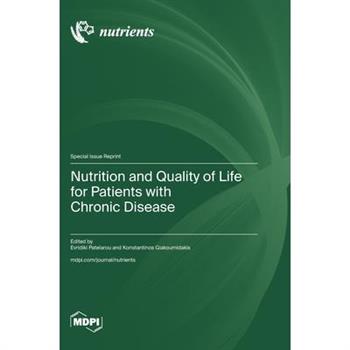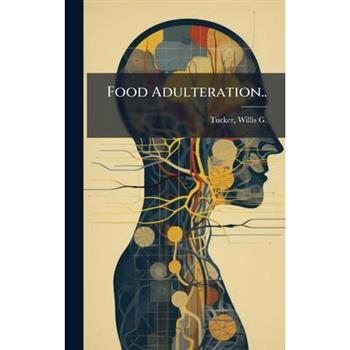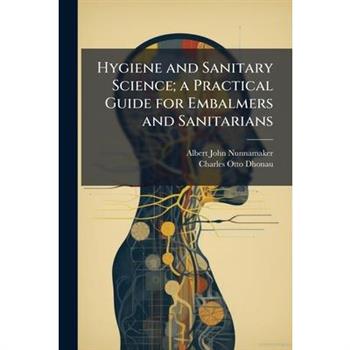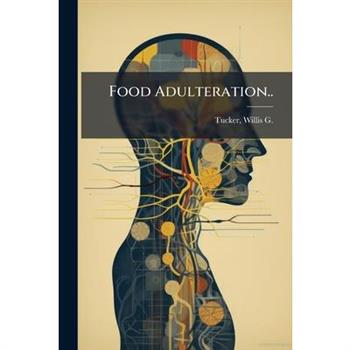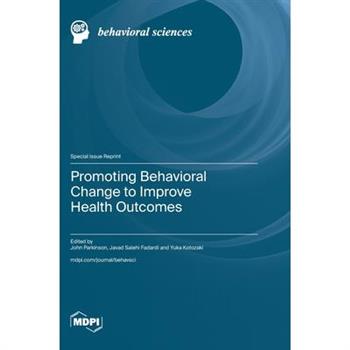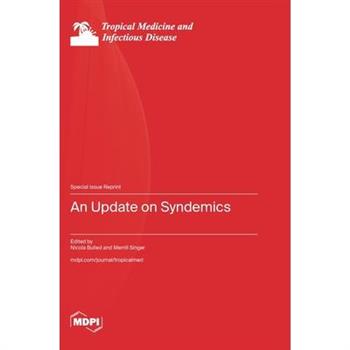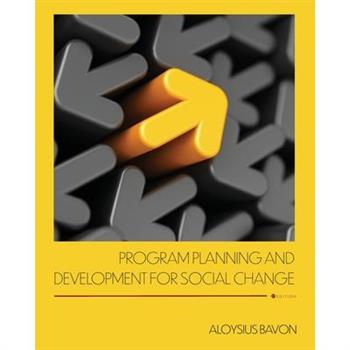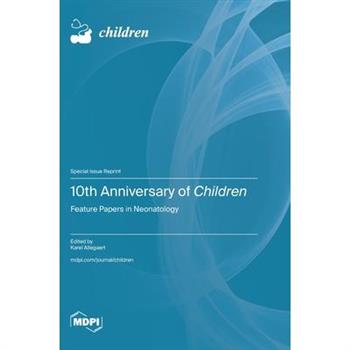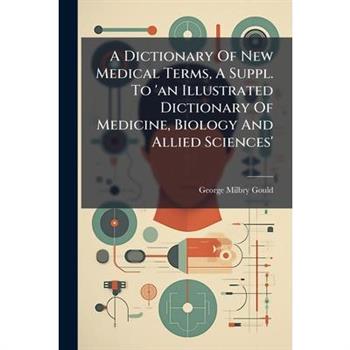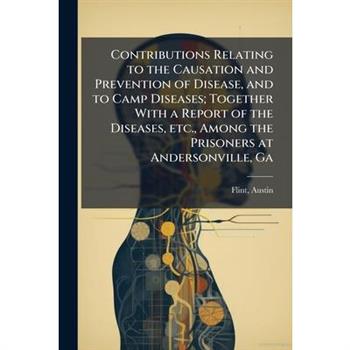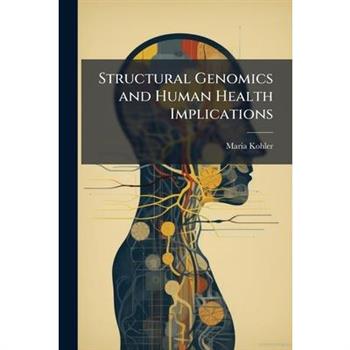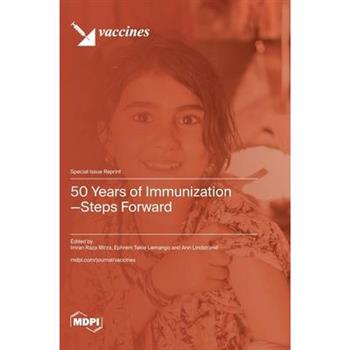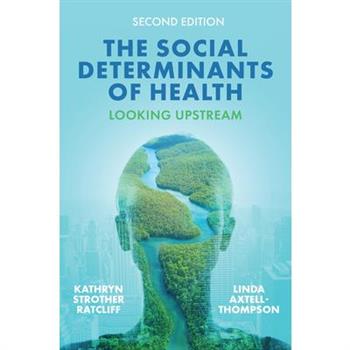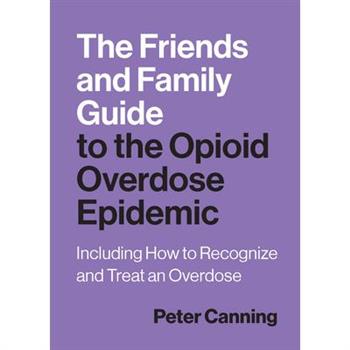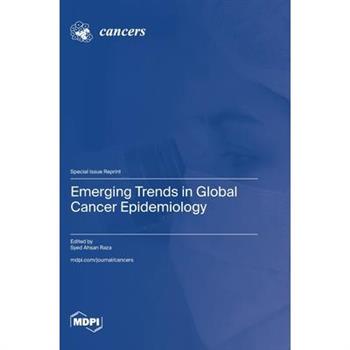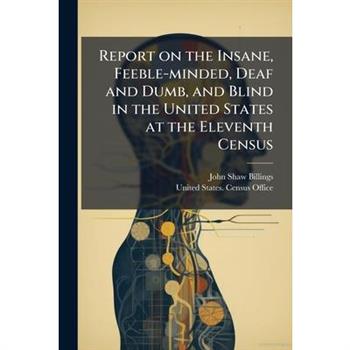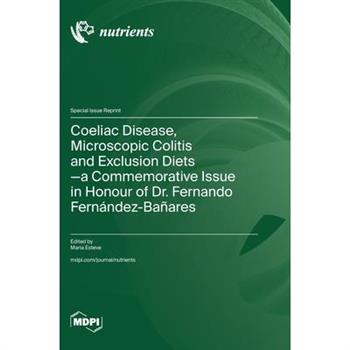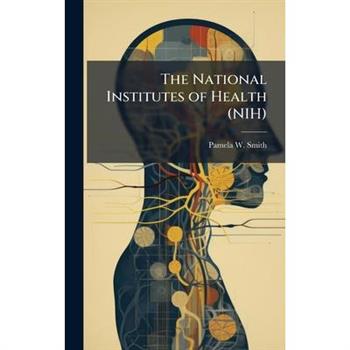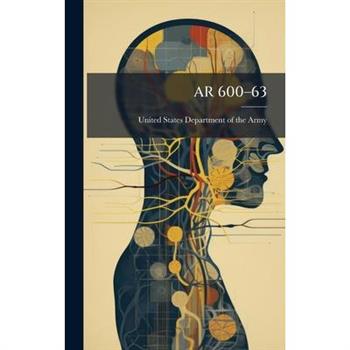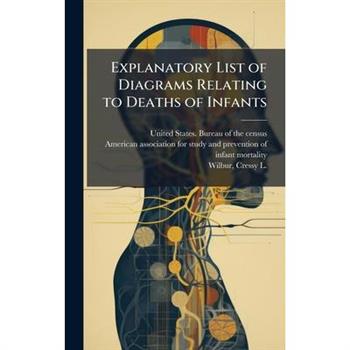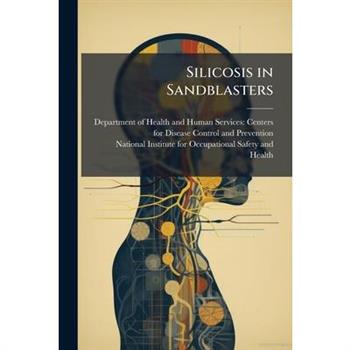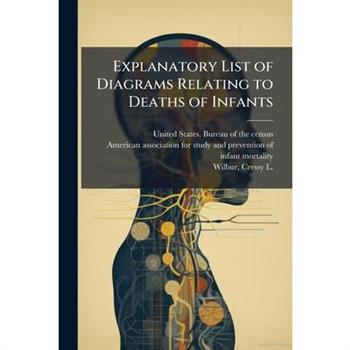Data Driven Insights in Healthcare
This Reprint presents a collection of data-driven investigations that advance healthcare research beyond traditional theory-driven approaches. The articles featured in this collection demonstrate how observational experiences and big data analytics can uncover novel insights that improve healthcare practice and delivery.This Reprint showcases diverse methodologies for extracting value from healthcare data sets, including qualitative analysis of comments, data mining of large data sets, exploratory data techniques utilizing artificial intelligence and machine learning, and other innovative approaches to discovering patterns and relationships within complex healthcare data. Review articles examining the application and potential of data-driven approaches in healthcare are also included.The research compiled in this Reprint illustrates how data exploration generates new possibilities and enhances understanding of current theories and practices in healthcare. The studies employ various data analytic methods to reveal relationships among variables and provide actionable insights for healthcare researchers and practitioners. Collectively, these works demonstrate that discoveries emerging from systematic data exploration merit continued investigation and offer practical value for advancing healthcare delivery and outcomes.
Assistive Technologies in Care and Rehabilitation
This Special Issue showcases recent developments and innovations in assistive technologies for rehabilitation and assistance. Featuring 24 contributions and an editorial, it highlights advances shaping research, clinical practice, and implementation in this field. This collection includes 18 original research articles and 6 reviews.The research articles within present novel solutions, such as neuro-visual adaptive control for robotic surgery, foot-controlled prosthetic arms, smart systems for people with intellectual disabilities, and sensor-based interventions for chronic conditions. These studies demonstrate how robotics, AI, sensors, and virtual reality enhance precision, autonomy, and patient engagement. The review articles analyze existing technologies, covering assistive devices for joints, virtual reality for mobility, robotic hand recovery systems, remote rehabilitation for back pain, stress-reducing technology for children with autism, and air quality monitoring for respiratory diseases. These reviews offer insights into their design, effectiveness, usability, and research gaps to guide future work.Collectively, this Special Issue illustrates the synergy between technological innovation, clinical practice, and research synthesis, offering valuable perspectives for scientists, engineers, and healthcare professionals.I wish to offer my sincere gratitude to all the authors, reviewers, and contributors. Special thanks to the editorial team and Managing Editor, Juicy Yang, for their exceptional dedication and guidance, which were essential to this project's success.
A Needle in a Haystack
The Reprint "A Needle in a Haystack: Looking for Gaps in Treatment and Education in Emergency Medicine" brings together ten peer-reviewed papers that explore current challenges, innovations, and evidence gaps across the broad spectrum of emergency medicine. This collection highlights the complexity of providing high-quality care under time pressure and resource limitations-from first aid and prehospital management to multidisciplinary interventions in emergency departments.The contributions address diverse topics, including advanced life support, prehospital obstetric care, pediatric emergencies, air transport, triage systems, and the psychological and ethical dimensions of emergency practice.By integrating findings from international research groups, this Reprint underscores the importance of methodological rigor, educational innovation, and equitable access to emergency care. Together, these studies point toward future priorities in curriculum harmonization, communication tools, and system-level improvements to strengthen the chain of survival and reduce preventable deaths worldwide.
Sensors for Physiological Monitoring and Digital Health
The Special Issue, "Sensors for Physiological Monitoring and Digital Health", successfully bridged different scientific disciplines, providing a platform for highly innovative research. The issue showcased the significant potential of health monitoring through physiological signals for personalized healthcare. It highlighted the need for long-term monitoring in both clinical settings, to aid in diagnosis, treatment, and ongoing patient care, and in home settings, to offer continuous remote monitoring, potentially improving health outcomes and reducing healthcare costs. Reliable monitoring of vital parameters like EEG, EMG, and heart rate for elderly and chronic patients, a challenge effectively met by developing continuous, real-time, and nonintrusive wearable, highly integrated sensor networks.The issue captured the rapid growth of the wearable medical device market and the evolution of biosensors and textile-based technologies, driven by advancements in microfabrication, flexible electronics, nanomaterials, and advances in wireless communication. It also explored how physiological monitoring using AI-powered digital health platforms is redefining healthcare, improving the quality of patient personalized care, and delivering value to all stakeholders. This collection of research now stands as a valuable resource, capturing the state-of-the-art in this exciting and emerging field.
Human Poliovirus
Polio eradication is the global effort to permanently eliminate poliovirus and the disease it causes, poliomyelitis. The Global Polio Eradication Initiative (GPEI) leads this effort. While wild poliovirus cases decreasing by over 99% since 1988, the job is not yet finished. Key aspects of polio eradication include the following: Ensuring high immunization coverage with oral polio vaccine (OPV) and inactivated polio vaccine (IPV). Robust surveillance systems, including acute flaccid paralysis surveillance to detect and respond to poliovirus circulation.Assuring polioviruses are not stored in laboratories.Rapid and effective responses to outbreaks, including vaccination campaigns.Significant funding from various sources.Only Pakistan and Afghanistan remain endemic for wild poliovirus.Two of the three wild poliovirus serotypes (Types 2 and 3) have been certified as eradicated.The Goal of Polio Eradication: Achieve a world free of all forms of poliovirus, including both wild and vaccine-derived strains.
Physical Activity for Psychological and Cognitive Development
Physical activity has multiple benefits for cognitive function, psychological variables, social skills and health, among other factors. The latest research and scientific studies reflect the evolution of and growing interest in this area. Even so, we must continue to advance the research on this topic. The aim of this Special Issue is to disseminate high-quality research related to cognitive and psychological development through physical activity. These original research articles deepen and expand our understanding of the role of physical activity in relation to cognitive performance, psychological variables and physical, mental, and psychosocial health.
Artificial Intelligence in Public Health
The COVID-19 pandemic accelerated AI adoption in healthcare, highlighting its potential in diagnostics, patient care, and resource management. This reprint presents a collection of articles, reviews, and other contributions spanning oncology, cardiology, mental health, imaging, and public health. It showcases the latest advances in AI applications, interdisciplinary approaches, and innovative strategies shaping the future of healthcare.
Clinical Psychology Research and Public Health
A lot of studies in the field of clinical psychology focus on mental health, behavior problems, adverse childhood experiences, substance use, stress and burnout, eating or sleeping disorders, addictions, etc., and point to the importance of physical, mental and social health on personal and professional well-being. Vulnerable individual or groups issues must also be analyzed as public health issues (e.g., chronic diseases). Training psychologists and doctors to deal with psychological/medical problems is a key point, considering that institutions need to diminish the negative impacts of mental-related problems and to improve public health interventions (through continuing education, university curricula, etc.)This Reprint aimed to provide articles about methods of intervention, psychotherapy, and treatment of various problems experienced by contemporary humans (families, groups, or communities from different cultures); crisis situations; critical incidents; and multidisciplinary approaches from a psychological, medical, social, cultural, and ethical perspective.
Eating Behaviors, Body Composition and Neuro Vulnerability in Energy Metabolism Regulation
This Reprint offers a state-of-the-art overview of the converging fields of clinical nutrition, energy metabolism, and neurobehavioral vulnerability. It explores how emerging dietary strategies, including the Mediterranean diet, influence body composition, metabolic energy expenditure, and the neurobiological mechanisms that underlie eating behaviors and disorders.Particular attention is given to body composition assessment through advanced methodologies such as DXA and BIA, to the regulation of metabolic processes and energy balance, and to the neurological aspects of obesity, food addiction, and eating disorders. The role of the gut microbiota is also examined as a key component of the gut-brain axis, with implications for nutrient absorption, appetite regulation, and the aggravation of neuro-metabolic fragility.By integrating insights from nutrition, metabolism, neuroscience, and behavioral science, this Reprint provides a comprehensive and updated perspective on how foods and dietary patterns affect human health. It highlights the importance of precision approaches in clinical nutrition and offers new directions for the prevention and management of chronic noncommunicable diseases and eating disorders.
Occurrence, Risk Assessment and Removal of Emerging Contaminants in Aquatic Environment
The pervasive presence of emerging contaminants (ECs) in aquatic environments poses a significant and escalating challenge to global public health and ecological stability. This Reprint, "Occurrence, Risk Assessment, and Removal of Emerging Contaminants in Aquatic Environments," presents a curated collection of cutting-edge research that addresses this multifaceted issue. The articles compiled herein explore the complex dynamics of ECs, from their detection and transport to their ultimate fate. The contributions delve into innovative treatment technologies, including the optimization of biological co-metabolism using waste streams for recalcitrant pollutant degradation, and the development of novel photocatalytic membranes that integrate separation with advanced oxidation to remove persistent antibiotics. The Reprint also provides critical field data on the occurrence and risk of specific classes of contaminants, such as organophosphate flame retardants and disinfection by-products, highlighting the limitations of conventional wastewater treatment infrastructure. Furthermore, it explores holistic management strategies, from the full-chain reprocessing of legacy landfilled sludge to the implementation of intelligent, AI-driven chemical dosing systems that enhance plant efficiency and sustainability. Complemented by comprehensive reviews on surfactant-enhanced remediation and the critical nexus of antibiotics and antimicrobial resistance in wastewater, this Reprint offers a vital, multifaceted perspective for researchers, engineers, and policymakers that are dedicated to safeguarding our water resources.
Why Black People Die Sooner
There is a persistent gap in life expectancy between Black people and their white counterparts in the United States. It is a direct result of structural racism within American society and has nothing to do with genetic differences. In past eras, scientific racism sought to shift the blame to the supposed physical inferiority of people of African descent. Even today, medicine labors under false beliefs derived from nineteenth-century racial thinking, harming patients who are not of European descent. Why Black People Die Sooner is a powerful and rigorous examination of the ways racism shapes health and disease. Joseph L. Graves Jr. demonstrates that the medical profession still fails to grasp basic facts about race, tracing how deep-rooted falsehoods have perpetuated the disparity between Black and white lifespans. He equips readers with the tools to dispel the fallacies and errors of racialized medicine, including an understanding of evolutionary biology and human biological variation. Graves also debunks common misconceptions about race and health on topics such as high blood pressure, sickle cell disease, the microbiome, infectious diseases, and cancer. Why Black People Die Sooner closes by offering a sweeping vision for dismantling medical racism, from professional training to clinical practice through biomedical research. Timely and bracing, this book reveals why medicine keeps misunderstanding race--and how we can make it change.
Nha EKG Study Guide 2025-2026 - 3 Full-Length Practice Tests, EKG Technician Exam Prep Secrets for the CET
Mometrix Test Preparation's NHA EKG Study Guide - EKG Technician Exam Prep Secrets is the ideal prep solution for anyone who wants to pass their Certified EKG Technician Exam. The exam is extremely challenging, and thorough test preparation is essential for success. Our study guide includes: Mometrix Test Preparation is not affiliated with or endorsed by any official testing organization. All organizational and test names are trademarks of their respective owners.The Mometrix guide is filled with the critical information you will need in order to do well on your CET exam: the concepts, procedures, principles, and vocabulary that the National Healthcareer Association (NHA) expects you to have mastered before sitting for your exam.The Safety, Compliance, and Coordinated Patient Care section covers: The ECG Acquisition section covers: The ECG Analysis and Interpretation section covers: ...and much more!Our guide is full of specific and detailed information that will be key to passing your exam. Concepts and principles aren't simply named or described in passing, but are explained in detail. The Mometrix CET study guide is laid out in a logical and organized fashion so that one section naturally flows from the one preceding it. Because it's written with an eye for both technical accuracy and accessibility, you will not have to worry about getting lost in dense academic language.Any test prep guide is only as good as its practice questions and answer explanations, and that's another area where our guide stands out. The Mometrix test prep team has provided plenty of CET practice test questions to prepare you for what to expect on the actual exam. Each answer is explained in depth, in order to make the principles and reasoning behind it crystal clear. All 3 practice tests are available to take in online interactive format, allowing you to immediately score your test and see what you got wrong. We've also printed all 3 practice tests in your guide for offline reference.We've helped hundreds of thousands of people pass standardized tests and achieve their education and career goals. We've done this by setting high standards for Mometrix Test Preparation guides, and our NHA EKG Study Guide - EKG Technician Exam Prep Secrets is no exception. It's an excellent investment in your future. Get the CET review you need to be successful on your exam.
Gout, With A Section On Ocular Disease In The Gouty
A startling rediscovery for anyone who has suffered the sting of swollen joints or feared for their sight: this classic medical guide unites clinical precision with compassionate care. Gout, With a Section on Ocular Disease in the Gouty by Llewellyn J. Llewellyn is an authoritative 20th-century text that examines gout symptoms, gout management, and the often-overlooked relationship between gout and vision. Drawing on case histories, clinical observations, and practical guidance, Llewellyn maps out approaches to gout treatment, gout prevention, and the management of gouty arthritis while giving special attention to ocular disease gout and gouty eye conditions. Readers will find clear explanations of diagnosis, therapeutic regimens, and the impact of systemic uric acid disorders on eye health. Historically significant and medically insightful, this volume sheds light on early clinical thinking about gout and ocular complications an invaluable resource for historians of medicine, clinicians, and informed patients alike. Whether you re seeking practical advice from a classic gout medical guide or adding a cultural treasure to your library, this book bridges past and present. Out of print for decades, this edition has been lovingly restored and republished by Alpha Editions. More than a reprint, it s a collector s item carefully prepared for today s clinicians, patients, and future generations. Essential reading for anyone concerned with gout treatment, gout prevention, and the delicate intersection of eye health and gout.
Unhealthy
In "Unhealthy," Harvard Medical School Professor Emeritus Dr. Richard L. Kradin delivers a blistering critique of America's healthcare system and its response to the COVID-19 pandemic. Drawing on over forty years of experience as a Harvard physician, Kradin exposes how the transformation of medicine from a profession to a corporate enterprise has corrupted healthcare delivery and policy decisions. The book methodically examines how ideological commitments, financial interests, and political agendas influenced critical pandemic decisions-from lockdowns and mask mandates to treatment protocols and vaccine policies. Kradin argues that these forces led health authorities to ignore established scientific principles, suppress alternative viewpoints, and promote one-size-fits-all solutions despite mounting evidence of their ineffectiveness. Beyond the pandemic, "Unhealthy" reveals deeper problems in modern medicine: the influence of pharmaceutical companies on research, the psychological factors driving physician compliance with questionable directives, and the dangers of allowing Progressive ideology to override empirical evidence in healthcare decisions. Part medical expos矇, part cultural critique, this thought-provoking work challenges conventional narratives about America's pandemic response and raises disturbing questions about the future of medicine in an increasingly politicized healthcare landscape. Kradin's insider perspective offers rare insight into how the medical establishment lost its way-and what it will take to restore scientific integrity and patient trust. If you enjoyed "The Real Anthony Fauci," "A Plague Upon Our House," and "Pandemia," you'll love "Unhealthy: Corruption, Malpractice, and COVID-19 in the American Health System."
Innovative Approaches for Safety Culture Improvement in Healthcare Systems
Improvements in patient safety have been achieved over the last twenty years, yet challenges remain in relation to safety culture, including the belief among healthcare professionals that blame is still part of their culture. This Special Issue presents papers that explore innovative approaches to understanding and developing safety culture in healthcare. The papers included within demonstrate the importance of taking a systems perspective when considering safety culture, including understanding culture as both an emergent property of systems and something that shapes systems, and as something that can improve patient and staff safety. Three case studies are presented in this Special Issue in relation to understanding and improving the safety culture in an intensive care unit, a nursing home, and in an obstetrics and gynecology department. Four papers present different ways to facilitate safety culture, including the importance of the patient's voice in understanding safety; the need for psychological safety among healthcare professionals to speak up for safety and a joint problem-solving orientation towards addressing problems when they are raised; the role of informal communication between healthcare professionals in joint sensemaking for safety and breaking the silence around safety; and the importance of informed consent for patients. Two perspectives in relation to just culture are presented, including one on the unique challenges of operationalizing just culture in residential care settings and a second on enabling organizational conditions for restorative just culture.
Assistive Technologies, Robotics, and Automated Machines in the Health Domain
This Reprint of the Special Issue highlights the transformative role of assistive technologies, robotics, and automated systems in modern healthcare. It showcases cutting-edge research aimed at enhancing patient care, improving accessibility, and supporting healthcare professionals in diverse clinical and rehabilitation settings. The collection emphasizes innovative solutions that empower patients, facilitate personalized interventions, and advance the integration of technology into everyday healthcare practices.
The Formula for Better Health
The formula to stop invisible killers--an approach that can protect your health and prevent the next pandemic--from one of the most influential public health leaders in the US. In The Formula for Better Health, Tom Frieden--named "the most influential leader in American public health since C. Everett Koop" by former Mayor Michael Bloomberg--reveals how to defeat the world's deadliest diseases. Drawing from decades leading New York City's health department after 9/11, directing the CDC during the Ebola epidemic, and fighting tuberculosis and other lethal threats in India and around the world, Frieden combines compelling stories with insider knowledge to show you how to win the battle for health. In this book, you will step into laboratories that solve mysteries and expose deadly deceptions. You'll meet a trailblazing epidemiologist who survived a Nazi concentration camp, a seventeenth-century cloth merchant who discovered public health's superpower, and a brilliant Irish doctor knighted for unlocking the cure for tuberculosis. You'll also learn how disease detectives ended the largest outbreak of drug-resistant tuberculosis in the United States, what caused the deadliest mistake during the COVID pandemic, and why we ignore urgent medical warnings. Most importantly, you'll find out how to stop today's leading killers. Using critical insights from real-world successes and failures, The Formula for Better Health bridges the lethal gap between scientific knowledge and life-saving action. Whether you want to protect your own health, safeguard your community, or solve seemingly impossible health challenges--or all three--this book offers realistic hope and a clear path to a healthier future.
Effects of Selenium and Other Micronutrient Intake on Human Health
Selenium, which is an important microelement for human health, plays a critical role in a wide variety of homeostatic processes through selenoproteins. These include endoplasmic reticulum homeostasis, immune response, regulation of transcription factors and apoptosis, control of the cellular redox state, and development of the central nervous system. Unfortunately, due to the narrow safe dose range of selenium intake, selenium deficiency and selenium excess can both yield adverse effects for human health. Low selenium status has been implicated in an increased risk of mortality, poor immune function, as well as some diseases such as Keshan disease, cretinism, and cognitive decline. Selenium excess leads to some side effects, e.g., hair loss, dermatitis, an elevated risk of diseases such as type 2 diabetes, and the occurrence of some neurological signs such as amyotrophic lateral sclerosis, hyperreflexia, convulsions, and motor weakness, etc. Considering the roles of Se in human health, selenium has gradually become a focal point of scientific research. Including, but not limited to, selenium, the Special Issue highlights the effects of micronutrient intake on human health.
Healthcare Goes Digital
Digital healthcare is rapidly evolving through AI, mobile health, electronic health, telemedicine, and wearable technologies, transforming patient care, workflow efficiency, and personalized medicine. This reprint of the Special Issue presents research and reviews on virtual interventions, mobile apps, chatbots, and wearable devices, highlighting innovations, challenges, and future directions in modern healthcare delivery. It explores patient-centered approaches, remote monitoring, and the potential of emerging technologies to improve accessibility, outcomes, and clinical decision-making.
Health Effects of Exposure to Environmental Pollutants
The study of the effects of environmental pollutants on human health has received widespread attention, including whether traditional pollutants such as particulate matters and heavy metals, or new pollutants such as nanoparticles and microplastics can cause serious impact to the environment and human health. Research on the potential toxic effects and mechanisms of environmental pollutants can provide a scientific basis for related prevention work.The purpose of this Special Issue is to publish research on the potential toxicity and mechanisms of environmental pollutants affecting humans or the environment. We encourage the use of novel methods such as multi-omics techniques, or research on new pollutants such as nanomaterials. Research using biomarkers to conduct biological monitoring to assess the impact of environmental or occupational pollutants on human exposure or health is also included, as well as reviews summarizing relevant recent advances.
Nutrition and Quality of Life for Patients with Chronic Disease
This Special Issue focuses on the impact of nutrition on the quality of life of patients with chronic diseases, including heart disease, kidney disease, diabetes, hypertension, cancer-related malnutrition, and digestive disorders. It brings together research on dietary interventions, nutrient deficiencies, and lifestyle factors that affect health outcomes. By addressing both clinical and psychosocial dimensions of chronic illness, this reprint offers practical, evidence-based insights to support patient care and promote well-being through nutrition-focused strategies.
Food Adulteration..
Food Adulteration, penned by Willis G. Tucker and originally published in 1903, offers a detailed look at the practices of food adulteration prevalent at the turn of the century. This historical work delves into the various methods used to deceive consumers through the debasement and contamination of food products. Tucker meticulously examines a wide array of food items, revealing the substances used as adulterants and the potential health consequences of their consumption.Beyond a mere catalog of deceptive practices, "Food Adulteration" underscores the importance of food analysis and regulation in safeguarding public health. It provides valuable insights into the historical context of food safety concerns and the evolution of efforts to ensure the purity of food supplies. This book serves as a crucial resource for understanding the ongoing challenges of food safety and the continuing need for vigilance in the food industry.This work has been selected by scholars as being culturally important, and is part of the knowledge base of civilization as we know it. This work was reproduced from the original artifact, and remains as true to the original work as possible. Therefore, you will see the original copyright references, library stamps (as most of these works have been housed in our most important libraries around the world), and other notations in the work.This work is in the public domain in the United States of America, and possibly other nations. Within the United States, you may freely copy and distribute this work, as no entity (individual or corporate) has a copyright on the body of the work.As a reproduction of a historical artifact, this work may contain missing or blurred pages, poor pictures, errant marks, etc. Scholars believe, and we concur, that this work is important enough to be preserved, reproduced, and made generally available to the public. We appreciate your support of the preservation process, and thank you for being an important part of keeping this knowledge alive and relevant.
Hygiene and Sanitary Science; a Practical Guide for Embalmers and Sanitarians
"Hygiene and Sanitary Science; a Practical Guide for Embalmers and Sanitarians" (1913) offers a comprehensive overview of hygiene and sanitation practices pertinent to early 20th-century embalming and public health. Written by Albert John Nunnamaker and Charles Otto Dhonau, this text delves into the scientific principles underpinning sanitary science, providing practical guidance for professionals in the fields of embalming and sanitation. The book addresses the critical importance of hygiene in preventing the spread of disease and maintaining public well-being. It serves as a valuable resource for understanding the historical context of public health practices and the evolution of sanitary science. It remains relevant for those interested in the history of medicine, public health, and mortuary science.This work has been selected by scholars as being culturally important, and is part of the knowledge base of civilization as we know it. This work was reproduced from the original artifact, and remains as true to the original work as possible. Therefore, you will see the original copyright references, library stamps (as most of these works have been housed in our most important libraries around the world), and other notations in the work.This work is in the public domain in the United States of America, and possibly other nations. Within the United States, you may freely copy and distribute this work, as no entity (individual or corporate) has a copyright on the body of the work.As a reproduction of a historical artifact, this work may contain missing or blurred pages, poor pictures, errant marks, etc. Scholars believe, and we concur, that this work is important enough to be preserved, reproduced, and made generally available to the public. We appreciate your support of the preservation process, and thank you for being an important part of keeping this knowledge alive and relevant.
The Virginia Mineral Springs, With Remarks on Their Use ..
"The Virginia Mineral Springs, With Remarks on Their Use..." by William Burke offers a detailed exploration of the various mineral springs in Virginia during the mid-19th century. This book serves as both a medical guide and a travelogue, providing insights into the purported health benefits of each spring and their therapeutic applications. Burke's work captures the burgeoning interest in health tourism and the use of natural springs for medicinal purposes during this period. The text provides descriptions of the geological compositions of the springs, alongside observations on their efficacy in treating various ailments. It is a valuable resource for understanding the social and medical practices of the time, offering a glimpse into a bygone era when mineral springs were considered vital for health and well-being. Scholars of medical history, tourism, and Virginia history will find this book a fascinating primary source.This work has been selected by scholars as being culturally important, and is part of the knowledge base of civilization as we know it. This work was reproduced from the original artifact, and remains as true to the original work as possible. Therefore, you will see the original copyright references, library stamps (as most of these works have been housed in our most important libraries around the world), and other notations in the work.This work is in the public domain in the United States of America, and possibly other nations. Within the United States, you may freely copy and distribute this work, as no entity (individual or corporate) has a copyright on the body of the work.As a reproduction of a historical artifact, this work may contain missing or blurred pages, poor pictures, errant marks, etc. Scholars believe, and we concur, that this work is important enough to be preserved, reproduced, and made generally available to the public. We appreciate your support of the preservation process, and thank you for being an important part of keeping this knowledge alive and relevant.
Food Adulteration..
Food Adulteration, penned by Willis G. Tucker and originally published in 1903, offers a detailed look at the practices of food adulteration prevalent at the turn of the century. This historical work delves into the various methods used to deceive consumers through the debasement and contamination of food products. Tucker meticulously examines a wide array of food items, revealing the substances used as adulterants and the potential health consequences of their consumption.Beyond a mere catalog of deceptive practices, "Food Adulteration" underscores the importance of food analysis and regulation in safeguarding public health. It provides valuable insights into the historical context of food safety concerns and the evolution of efforts to ensure the purity of food supplies. This book serves as a crucial resource for understanding the ongoing challenges of food safety and the continuing need for vigilance in the food industry.This work has been selected by scholars as being culturally important, and is part of the knowledge base of civilization as we know it. This work was reproduced from the original artifact, and remains as true to the original work as possible. Therefore, you will see the original copyright references, library stamps (as most of these works have been housed in our most important libraries around the world), and other notations in the work.This work is in the public domain in the United States of America, and possibly other nations. Within the United States, you may freely copy and distribute this work, as no entity (individual or corporate) has a copyright on the body of the work.As a reproduction of a historical artifact, this work may contain missing or blurred pages, poor pictures, errant marks, etc. Scholars believe, and we concur, that this work is important enough to be preserved, reproduced, and made generally available to the public. We appreciate your support of the preservation process, and thank you for being an important part of keeping this knowledge alive and relevant.
An Anthropometric Manual, Giving Physical Measurements and Tests of Male College Students, and the Method of Securing Them
"An Anthropometric Manual" is a detailed guide outlining physical measurements and tests conducted on male college students. Authored by the Department of Physical Education and Hygiene at Amherst College, and Edward Hitchcock (1828-1911), this manual provides methodologies for gathering and interpreting anthropometric data. Dating back to 1893, it offers insights into the standards and practices of physical assessment during that era. The book is invaluable for researchers, historians of science and medicine, and anyone interested in the evolution of physical education and public health. It serves as a primary source for understanding the historical context of anthropometry and its application in educational settings.This work has been selected by scholars as being culturally important, and is part of the knowledge base of civilization as we know it. This work was reproduced from the original artifact, and remains as true to the original work as possible. Therefore, you will see the original copyright references, library stamps (as most of these works have been housed in our most important libraries around the world), and other notations in the work.This work is in the public domain in the United States of America, and possibly other nations. Within the United States, you may freely copy and distribute this work, as no entity (individual or corporate) has a copyright on the body of the work.As a reproduction of a historical artifact, this work may contain missing or blurred pages, poor pictures, errant marks, etc. Scholars believe, and we concur, that this work is important enough to be preserved, reproduced, and made generally available to the public. We appreciate your support of the preservation process, and thank you for being an important part of keeping this knowledge alive and relevant.
Promoting Behavioral Change to Improve Health Outcomes
Health promotion and illness prevention interventions play a pivotal role in promoting healthier behaviours and reducing the prevalence and burden of disease across the world. These interventions utilise a multifaceted approach that includes education and awareness campaigns, behavioural techniques to influence individual and collective choices, and system changes to support citizens in making healthier choices. This Special Issue focuses on research studying such behaviours and is particularly interested in the prevention agenda; that is, the way in which the adoption of healthy behaviours can delay or even prevent future illness and chronic disease. The studies reported herein encompass a diverse range of health behaviours, from addiction and physical activity sustainability to medical adherence, mental health, and sleep. The reprint will be of particular interest to researchers interested in behaviour change, and those looking for examples of how theory can be used effectively in both understanding complex challenges and in applied settings. The benefits of these interventions are twofold: individuals lead healthier, longer lives, and the societal costs associated with treating preventable diseases are considerably reduced.
An Update on Syndemics
The syndemics framework proposes that the co-occurrence of diseases within specific time periods and geographic regions is driven by adverse social and environmental conditions that exacerbate and reinforce poor health outcomes. Over the past quarter-century, this theoretical lens has significantly shaped health-related disciplines, offering critical insights into research, policy, and practice.This Special Issue seeks to spotlight emerging syndemic configurations of infectious diseases with the goal of informing more effective health policies and interventions. Much of the existing literature has focused on HIV-related syndemics; however, newer constellations of diseases-such as those involving COVID-19, Ebola, MPOX, dengue, mucormycosis, and neglected tropical diseases-are increasingly evident and merit scholarly attention. In addition, while pandemics increasingly cross borders and share underlying social determinants, the specific syndemic dynamics they generate are deeply shaped by local political, economic, cultural, and environmental factors. Accordingly, there is an urgent need for place-specific analyses that support tailored intervention strategies.In this Special Issue, authors were asked to address all three core elements of the syndemics framework: the biological interplay of diseases, the synergistic effects that emerge from their interaction, and the local social characteristics of affected populations that support disease clustering.
Program Planning and Development for Social Change
Program Planning and Development for Social Change provides readers with an opportunity to develop a shared understanding of concepts, strategies, and skills for designing and planning projects that can contribute to the effective development of communities. It draws on broader program planning literature and practitioner experiences to provide the requisite tools to help the reader gain proficiency in program design to enhance social change.The book emphasizes a coordinated and theory-based approach to crafting purposeful activities with the goal of inspiring targeted social change. It guides the reader through a step-by-step process, covering critical content areas such as needs assessment, the identification and formulation of program goals and objectives, the choice and implementation of evidence-based best practices and models, as well as the development of thorough program evaluations.Program Planning and Development for Social Change is ideal for courses and programs that focus on community development, social work, public health, and nonprofit management. It provides readers with the foundational knowledge they need to initiate and sustain meaningful programs within their communities.
10th Anniversary of Children
This Special Issue focuses on the latest insights into neonatology, neonatal research, and care. Topics cover preclinical research, epidemiology relevant to neonatal care, analyses of guideline adherence, the relevance of families in the centre of contemporary neonatal care, and aspects related to screening and prevention. This Special Issue, therefore, explores the diversity of topics and research lines, which is needed to fill knowledge gaps, share practices, and encourage evidence-based practices.
A Dictionary Of New Medical Terms, A Suppl. To 'an Illustrated Dictionary Of Medicine, Biology And Allied Sciences'
"A Dictionary Of New Medical Terms" is an invaluable supplement to 'An Illustrated Dictionary Of Medicine, Biology And Allied Sciences, ' offering a comprehensive collection of contemporary medical vocabulary. Compiled by George Milbry Gould, this dictionary addresses the evolving language of medicine, providing clear and concise definitions for new terms, concepts, and procedures. This essential reference work bridges the gap between historical medical terminology and modern usage, making it an indispensable resource for medical professionals, students, and anyone seeking to understand the intricacies of medical language.Gould's meticulous attention to detail ensures accuracy and clarity, solidifying the dictionary's place as a key tool for effective communication in the medical field. Its enduring relevance lies in its ability to demystify complex terminology and foster a deeper understanding of medical science. A must-have for any medical library or personal collection.This work has been selected by scholars as being culturally important, and is part of the knowledge base of civilization as we know it. This work was reproduced from the original artifact, and remains as true to the original work as possible. Therefore, you will see the original copyright references, library stamps (as most of these works have been housed in our most important libraries around the world), and other notations in the work.This work is in the public domain in the United States of America, and possibly other nations. Within the United States, you may freely copy and distribute this work, as no entity (individual or corporate) has a copyright on the body of the work.As a reproduction of a historical artifact, this work may contain missing or blurred pages, poor pictures, errant marks, etc. Scholars believe, and we concur, that this work is important enough to be preserved, reproduced, and made generally available to the public. We appreciate your support of the preservation process, and thank you for being an important part of keeping this knowledge alive and relevant.
Contributions Relating to the Causation and Prevention of Disease, and to Camp Diseases; Together With a Report of the Diseases, etc., Among the Prisoners at Andersonville, Ga
"Contributions Relating to the Causation and Prevention of Disease, and to Camp Diseases" by Austin Flint offers a detailed exploration of the medical challenges and conditions prevalent during the Civil War era. This historical account includes a specific report on the diseases and health conditions among prisoners at Andersonville, Georgia, providing valuable insight into the harsh realities of prisoner-of-war camps. Flint's work sheds light on the state of medical knowledge and public health practices during this critical period in American history. It remains a significant resource for understanding the intersection of disease, warfare, and human suffering. A vital record for historians and medical professionals alike.This work has been selected by scholars as being culturally important, and is part of the knowledge base of civilization as we know it. This work was reproduced from the original artifact, and remains as true to the original work as possible. Therefore, you will see the original copyright references, library stamps (as most of these works have been housed in our most important libraries around the world), and other notations in the work.This work is in the public domain in the United States of America, and possibly other nations. Within the United States, you may freely copy and distribute this work, as no entity (individual or corporate) has a copyright on the body of the work.As a reproduction of a historical artifact, this work may contain missing or blurred pages, poor pictures, errant marks, etc. Scholars believe, and we concur, that this work is important enough to be preserved, reproduced, and made generally available to the public. We appreciate your support of the preservation process, and thank you for being an important part of keeping this knowledge alive and relevant.
Structural Genomics and Human Health Implications
Robust biomedical research in the United States has led to many advances in modern medicine. Our current knowledge of genomics and proteomics has opened the door for many new technologies, which often merge several disciplines, such as molecular biology, biochemistry, and bioinformatics. One of those ever evolving technologies is protein X-ray crystallography which allows visualization of macromolecular structures at the atomic level and accurate determination of protein structures. An understanding of protein structure and function, brought about by structural genomics research, could have implications in civilian and military medicine with applications in new drug developments, enhanced vaccination efficacies and biological warfare agent neutralization. More specifically, knowing the structure of an enzyme, could lead to designing of a molecule that would bind to the active site of the enzyme and either activate or deactivate its action. This approach could be used in structural and functional analysis of proteins and may possibly play a role in diabetes, viral and bacterial infections, cancer and biotoxin action mechanisms. Third-generation synchrotrons, such as the one at the Argonne National Laboratory's Advance Photon Source, allow scientists to determine the three-dimensional protein structures at the highest resolution. Additionally, high-throughput structural genomics laboratories, such as Argonne's Midwest Center for Structural Genomics, make protein structures available for further studies to scientists around the world by rapidly solving and depositing them into protein databases.This work has been selected by scholars as being culturally important, and is part of the knowledge base of civilization as we know it. This work was reproduced from the original artifact, and remains as true to the original work as possible. Therefore, you will see the original copyright references, library stamps (as most of these works have been housed in our most important libraries around the world), and other notations in the work.This work is in the public domain in the United States of America, and possibly other nations. Within the United States, you may freely copy and distribute this work, as no entity (individual or corporate) has a copyright on the body of the work.As a reproduction of a historical artifact, this work may contain missing or blurred pages, poor pictures, errant marks, etc. Scholars believe, and we concur, that this work is important enough to be preserved, reproduced, and made generally available to the public. We appreciate your support of the preservation process, and thank you for being an important part of keeping this knowledge alive and relevant.
50 Years of Immunization-Steps Forward
"50 Years of Immunization - Steps Forward" is a compelling volume that chronicles the evolution, achievements, and future directions of one of the most impactful public health initiatives in history-the Expanded Programme on Immunization (EPI).Launched in 1974, EPI aimed to ensure equitable access to life-saving vaccines for every child, regardless of location or socioeconomic status. Over five decades, this global effort has significantly expanded vaccine coverage, reduced childhood mortality, and evolved into the Essential Programme on Immunization, now encompassing vaccines across the life course-including for adolescents and adults.This Special Issue of the journal Vaccines brings together over 25 articles authored by global experts and public health leaders. It features historical reflections, current analyses, and forward-looking perspectives, spanning global reviews, regional overviews, country case studies, and contributions from low- and middle-income countries. Readers will gain insights into how EPI has driven innovations in vaccine supply chains, digital technologies, safety surveillance, and delivery models. It also highlights the programme's integration with broader health agendas, advancing disease control, equity, and universal health coverage. Published to mark EPI's 50th anniversary in 2024, this volume is both a celebration of progress and a call to action-inviting global stakeholders to reflect, learn, and shape the future of immunization.
Social Determinants of Health
The new edition of this popular and timely introduction takes seriously the idea that health outcomes can only be fully understood by investigating the role the social world plays in our health. Kathryn Strother Ratcliff and Linda Axtell-Thompson put into practice the "upstream" imagery championed by public health experts, locating the causes of health problems - and their solutions - within the social environment. Each chapter explains how the shape of social institutions, the unequal realities of community life, and the politics behind corporate and governmental decisions produce and perpetuate unhealthy living and working conditions. This new edition brings the discussion up to date, linking it more strongly to existing US and international policy frameworks on the determinants of health, and pays greater attention to socioeconomic factors, education, climate change, and neighborhood disparities. Arguing that none of us should be placed in health-threatening situations that could be prevented, Ratcliff and Axtell-Thompson's provocative analysis uses social justice and human rights lenses to guide public discussion toward changes that can produce a healthier world for us all. The material in this book will continue to be invaluable to professionals and students in sociology, public health, and other fields related to health.
The Friends and Family Guide to the Opioid Overdose Epidemic
A practical and compassionate guide to understanding and addressing the opioid crisis.The opioid crisis in the United States continues to kill Americans at an alarming rate. Over the past two decades, annual overdose deaths have skyrocketed, growing from roughly 20,000 per year to over 100,000 per year. In this deeply informed and compassionate guide, Peter Canning shares the devastating realities of the opioid crisis from the perspective of a seasoned paramedic and advocate. This essential resource provides practical tools to recognize and respond to overdoses, access life-saving treatments like naloxone, and navigate the complex landscape of addiction and recovery. Canning humanizes the crisis through poignant stories of individuals and families grappling with the ripple effects of substance use. The book offers a broader understanding of the epidemic's roots, including the rise of fentanyl, the science of addiction, and the transformative potential of harm reduction strategies. Canning explains how to recognize the signs of overdose, the risk factors that increase the likelihood of overdose, and the precautions that both people who use opioids and those who care about them can take. With extensive experience as a paramedic who responded to countless opioid overdoses, Canning explains what to do in case you discover someone who has overdosed on opioids.For anyone trying to help a loved one manage opioid use disorder, the process can be overwhelming, and the stigma that accompanies substance use disorder makes it even harder. Whether you're a concerned citizen, a family member, or someone directly impacted by the crisis, The Friend and Family Guide to the Opioid Overdose Epidemic equips you with the knowledge and empathy to take meaningful steps toward saving lives and fostering understanding in your community.
Emerging Trends in Global Cancer Epidemiology
Cancer remains one of the most pressing global public health challenges, with the number of new cases and deaths rising each year. As the global cancer burden continues to grow, so does the need for rigorous epidemiological research that elucidates patterns in incidence, mortality, prevalence, and survival across diverse populations and regions. This Special Issue, entitled Emerging Trends in Global Cancer Epidemiology, brings together a collection of impactful studies that reflect the evolving landscape of cancer epidemiology worldwide. These contributions offer fresh perspectives on emerging cancer trends, showcase innovative methodologies including big data analytics, genomics, and machine learning and examine the role of environmental, lifestyle, and social determinants in shaping cancer outcomes. From investigations into population-level disparities to evaluations of prevention strategies, each study adds a critical piece to the global cancer puzzle. Collectively, this Special Issue aims to advance our understanding of cancer as a global health threat and inform the development of effective, population-level strategies for cancer prevention and control.
Report on the Insane, Feeble-minded, Deaf and Dumb, and Blind in the United States at the Eleventh Census
This is a digitized report from the United States Census of 1890, focusing on statistics related to individuals with mental and physical disabilities. Titled "Report on the Insane, Feeble-minded, Deaf and Dumb, and Blind in the United States at the Eleventh Census: 1890," it provides a comprehensive overview of the prevalence and distribution of these conditions across the nation during that period. Authored by John Shaw Billings for the United States Census Office, the report offers valuable insights into the demographic and social characteristics of affected populations, serving as a crucial resource for researchers, historians, and those interested in the history of public health and disability studies. The data contained within presents a snapshot of American society at the close of the 19th century, shedding light on the challenges faced by individuals with disabilities and the societal responses to their needs.This work has been selected by scholars as being culturally important, and is part of the knowledge base of civilization as we know it. This work was reproduced from the original artifact, and remains as true to the original work as possible. Therefore, you will see the original copyright references, library stamps (as most of these works have been housed in our most important libraries around the world), and other notations in the work.This work is in the public domain in the United States of America, and possibly other nations. Within the United States, you may freely copy and distribute this work, as no entity (individual or corporate) has a copyright on the body of the work.As a reproduction of a historical artifact, this work may contain missing or blurred pages, poor pictures, errant marks, etc. Scholars believe, and we concur, that this work is important enough to be preserved, reproduced, and made generally available to the public. We appreciate your support of the preservation process, and thank you for being an important part of keeping this knowledge alive and relevant.
Coeliac Disease, Microscopic Colitis and Exclusion Diets-a Commemorative Issue in Honour of Dr. Fernando Fern獺ndez-Ba簽ares
This Special Issue covers key aspects of coeliac disease (CD) research, from epidemiology to diagnostic methods, dietary management, and associated diseases. Diagnostics are central, with studies supporting rapid anti-tTG-IgA tests and the celiac lymphogram (TCR-γδ+ IELs) in complex cases. CD often coexists with microscopic colitis (MC) and eosinophilic esophagitis (EoE), complicating care. Low-FODMAP diets may help with non-responsive CD cases, but a gluten-free diet remains essential.
The National Institutes of Health (NIH)
The National Institutes of Health is the focal point for federal health research. An agency of the Department of Health and Human Services (HHS), it uses its $28.5 billion budget to support more than 200,000 scientists and research personnel working at over 3,100 institutions across the U.S. and abroad, as well as to conduct biomedical and behavioral research and research training at its own facilities. The agency consists of the Office of the Director, in charge of overall policy and program coordination, and 27 institutes and centers, each of which focuses on particular diseases or research areas in human health. A range of basic and clinical research is funded through a highly competitive system of peer-reviewed grants and contracts.This work has been selected by scholars as being culturally important, and is part of the knowledge base of civilization as we know it. This work was reproduced from the original artifact, and remains as true to the original work as possible. Therefore, you will see the original copyright references, library stamps (as most of these works have been housed in our most important libraries around the world), and other notations in the work.This work is in the public domain in the United States of America, and possibly other nations. Within the United States, you may freely copy and distribute this work, as no entity (individual or corporate) has a copyright on the body of the work.As a reproduction of a historical artifact, this work may contain missing or blurred pages, poor pictures, errant marks, etc. Scholars believe, and we concur, that this work is important enough to be preserved, reproduced, and made generally available to the public. We appreciate your support of the preservation process, and thank you for being an important part of keeping this knowledge alive and relevant.
AR 600璽€"63
The United States Army Publishing Directorate is the Army's leader in publishing and delivering informational products worldwide. Their main mission is to supply official authenticated information to enhance the readiness of the total force. Some product topics include: Army Regulations, Engineering Technical Manuals, Administrative Publications, Circulars and Pamphlets. This is one of their documents.This work has been selected by scholars as being culturally important, and is part of the knowledge base of civilization as we know it. This work was reproduced from the original artifact, and remains as true to the original work as possible. Therefore, you will see the original copyright references, library stamps (as most of these works have been housed in our most important libraries around the world), and other notations in the work.This work is in the public domain in the United States of America, and possibly other nations. Within the United States, you may freely copy and distribute this work, as no entity (individual or corporate) has a copyright on the body of the work.As a reproduction of a historical artifact, this work may contain missing or blurred pages, poor pictures, errant marks, etc. Scholars believe, and we concur, that this work is important enough to be preserved, reproduced, and made generally available to the public. We appreciate your support of the preservation process, and thank you for being an important part of keeping this knowledge alive and relevant.
Explanatory List of Diagrams Relating to Deaths of Infants
"Explanatory List of Diagrams Relating to Deaths of Infants," published in 1910, offers a critical snapshot of infant mortality trends in the United States during the early 20th century. Compiled by the United States Bureau of the Census in collaboration with the American Association for Study and Prevention of Infant Mortality, and featuring the work of Cressy L. Wilbur, this document provides invaluable insights into the demographic and public health challenges of the era. The diagrams and accompanying explanations shed light on the causes and patterns of infant deaths, providing essential data for researchers, historians, and public health professionals. This historical document serves as a poignant reminder of past struggles and offers valuable lessons for ongoing efforts to improve infant health and well-being.This work has been selected by scholars as being culturally important, and is part of the knowledge base of civilization as we know it. This work was reproduced from the original artifact, and remains as true to the original work as possible. Therefore, you will see the original copyright references, library stamps (as most of these works have been housed in our most important libraries around the world), and other notations in the work.This work is in the public domain in the United States of America, and possibly other nations. Within the United States, you may freely copy and distribute this work, as no entity (individual or corporate) has a copyright on the body of the work.As a reproduction of a historical artifact, this work may contain missing or blurred pages, poor pictures, errant marks, etc. Scholars believe, and we concur, that this work is important enough to be preserved, reproduced, and made generally available to the public. We appreciate your support of the preservation process, and thank you for being an important part of keeping this knowledge alive and relevant.
Pandemic Influenza
This paper examines influenza pandemics and the operational readiness implications they brings to the US military. The paper will examine a historical example of a pandemic that had devastating effects on the military; the Spanish Flu of 1918. Pandemic predictive models will show how an influenza pandemic will affect military operational readiness. And finally, the paper will discuss ways to mitigate a pandemic's effects on operational readiness.This work has been selected by scholars as being culturally important, and is part of the knowledge base of civilization as we know it. This work was reproduced from the original artifact, and remains as true to the original work as possible. Therefore, you will see the original copyright references, library stamps (as most of these works have been housed in our most important libraries around the world), and other notations in the work.This work is in the public domain in the United States of America, and possibly other nations. Within the United States, you may freely copy and distribute this work, as no entity (individual or corporate) has a copyright on the body of the work.As a reproduction of a historical artifact, this work may contain missing or blurred pages, poor pictures, errant marks, etc. Scholars believe, and we concur, that this work is important enough to be preserved, reproduced, and made generally available to the public. We appreciate your support of the preservation process, and thank you for being an important part of keeping this knowledge alive and relevant.
Silicosis in Sandblasters
To learn about epidemiology by studying an occupational hazard, a disease associated with the hazard, and the methods for preventing the disease. Epidemiology is the study of why and how a disease occurs and spreads in populations. The purpose of epidemiology is to prevent and control disease by identifying its causes and the methods for control. Occupational epidemiology is the study of disease or injury related to work activities and the worksite.Congress passed the Occupational Safety and Health Act in 1970 to assure every working man and woman in the United States a safe and healthful workplace. Although we have made progress since that time, serious problems still occur and result in illness, injury, disability, and death. Preventing these tragedies requires the cooperation and effort of everyone concerned.More than 2 million U.S. workers are potentially exposed to dusts containing crystalline silica. Prolonged inhalation of silica-containing dusts puts these workers at risk for the disease silicosis-a nodular fibrosis of the lungs that causes shortness of breath. More than 100,000 U.S. workers are in high-risk occupations such as sandblasting. Most sandblasters work in construction and shipbuilding. Workers may be exposed to crystalline silica in many other industries, including surface and underground mining, pottery, drywall hanging, glassmaking, foundry work, quarry work, work with sandblasting materials, agriculture, and automotive repair.This work has been selected by scholars as being culturally important, and is part of the knowledge base of civilization as we know it. This work was reproduced from the original artifact, and remains as true to the original work as possible. Therefore, you will see the original copyright references, library stamps (as most of these works have been housed in our most important libraries around the world), and other notations in the work.This work is in the public domain in the United States of America, and possibly other nations. Within the United States, you may freely copy and distribute this work, as no entity (individual or corporate) has a copyright on the body of the work.As a reproduction of a historical artifact, this work may contain missing or blurred pages, poor pictures, errant marks, etc. Scholars believe, and we concur, that this work is important enough to be preserved, reproduced, and made generally available to the public. We appreciate your support of the preservation process, and thank you for being an important part of keeping this knowledge alive and relevant.
Explanatory List of Diagrams Relating to Deaths of Infants
"Explanatory List of Diagrams Relating to Deaths of Infants," published in 1910, offers a critical snapshot of infant mortality trends in the United States during the early 20th century. Compiled by the United States Bureau of the Census in collaboration with the American Association for Study and Prevention of Infant Mortality, and featuring the work of Cressy L. Wilbur, this document provides invaluable insights into the demographic and public health challenges of the era. The diagrams and accompanying explanations shed light on the causes and patterns of infant deaths, providing essential data for researchers, historians, and public health professionals. This historical document serves as a poignant reminder of past struggles and offers valuable lessons for ongoing efforts to improve infant health and well-being.This work has been selected by scholars as being culturally important, and is part of the knowledge base of civilization as we know it. This work was reproduced from the original artifact, and remains as true to the original work as possible. Therefore, you will see the original copyright references, library stamps (as most of these works have been housed in our most important libraries around the world), and other notations in the work.This work is in the public domain in the United States of America, and possibly other nations. Within the United States, you may freely copy and distribute this work, as no entity (individual or corporate) has a copyright on the body of the work.As a reproduction of a historical artifact, this work may contain missing or blurred pages, poor pictures, errant marks, etc. Scholars believe, and we concur, that this work is important enough to be preserved, reproduced, and made generally available to the public. We appreciate your support of the preservation process, and thank you for being an important part of keeping this knowledge alive and relevant.
Pepfar
The Joint United Nations Program on HIV/AIDS (UNAIDS) estimates that HIV/AIDS, tuberculosis (TB), and malaria kill more than 6 million people each year. At the end of 2006, about 39.5 million people were living with HIV/AIDS, 2.3 million (6%) of whom were children under 15 years. Nearly 90% of all children infected with HIV are African. On each day of 2005, some 1,500 children around the world contracted HIV, due in large part to inadequate access to drugs that prevent mother-to-child HIV transmission (PMTCT). In that year, 8% of pregnant women in low- and middle-income countries had access to PMTCT services.This work has been selected by scholars as being culturally important, and is part of the knowledge base of civilization as we know it. This work was reproduced from the original artifact, and remains as true to the original work as possible. Therefore, you will see the original copyright references, library stamps (as most of these works have been housed in our most important libraries around the world), and other notations in the work.This work is in the public domain in the United States of America, and possibly other nations. Within the United States, you may freely copy and distribute this work, as no entity (individual or corporate) has a copyright on the body of the work.As a reproduction of a historical artifact, this work may contain missing or blurred pages, poor pictures, errant marks, etc. Scholars believe, and we concur, that this work is important enough to be preserved, reproduced, and made generally available to the public. We appreciate your support of the preservation process, and thank you for being an important part of keeping this knowledge alive and relevant.




